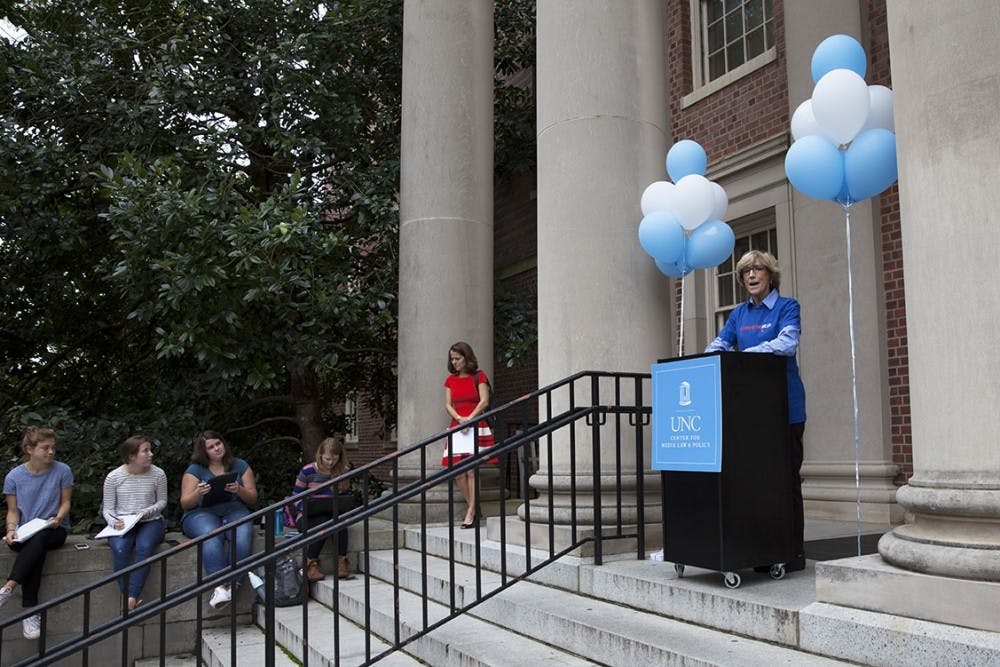A two-day conference at the George Watts Hill Alumni Center over the weekend examined the role of the First Amendment in creating an informed society and ensuring the needs of democracy.
The event, hosted by the UNC Center for Media Law and Policy, along with the First Amendment Law Review and the Center for Information, Technology, and Public Life, featured a variety of speakers who work in media.
At the beginning of the symposium, Susan King, dean of the UNC Hussman School of Journalism and Media, said people have seen newspapers, particularly in local areas, diminishing — which she called a crisis for democracy.
“We don’t just want to document the end,” King said. “What is the sustainability model for written news in our communities that will keep democracy strong?”
David Ardia, faculty co-director of the UNC Center for Media Law and Policy and an associate professor of law, said people can’t just sit back and expect the information that they need to be available to them.
He said the last few years have shown people that the primary source of information about the world, government and communities is produced by journalists who are struggling.
Social media and other forms of sharing digital information have increased, Ardia said, but the same high-quality information is becoming harder to find.
“These are issues that are very difficult,” Ardia said. “There needs to be a multi-disciplinary conversation, because the challenges we face are multi-disciplinary.”
The conference brought together a variety of scholars and media professionals.



